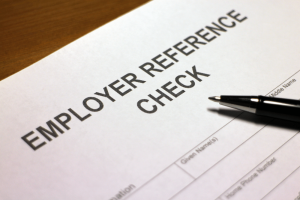A Guide to Tenant Referencing for Landlords
Tenant referencing checks reduce the chances of getting a less-than-desirable tenant living in your property. In this guide, we’re bringing you everything there is to know about tenant referencing.
Why you should reference tenants?
You have evidence that your prospective tenants have not caused any issues in their previous properties by running all the necessary checks. Although there is no guarantee that your tenant won’t cause you any trouble, it is still much wiser to reference check them, no matter how quickly you want a new tenant to move into your rental property.
What kind of referencing should you do?
Discuss basic tenant requirements
These will be personal to you and your property. For instance, if you do not allow pets, then this is a very important conversation to have with a possible tenant before committing to an agreement. Other personal requirements may include making sure the person is a non-smoker.
Get their personal details and a photo ID
Getting a tenant’s phone number and email address will help facilitate easy communication. A photo ID should prove their age and identity so you can make sure you’re compliant with any government regulations.
Check their income, finances and their credit history
To assess your tenant’s income, and their past ability to pay bills, you can ask for their last three bank statements and copies of their utility bills from their previous tenancy.
![]()
Bank statements should show you whether they can truly afford to pay rent. According to the ONS, 30% of a person’s monthly income is an affordable sum to pay for rent in the UK, other than in London.
Running a credit check will highlight any County Court Judgements, bankruptcy and insolvency cases, or just bad credit.
Ask for a guarantor, if necessary
If your tenants are students or new to renting, they may not have a credit history for you to check. In these cases, a guarantor can be nominated by the tenant as the person that will be responsible for paying outstanding rent or damage fees if the tenant is not able to do so. You should also run a credit check on this guarantor to ensure they would fulfill their responsibility should the need arise.
Ensure they have the Right to Rent
Landlords and letting agents are legally required to check their tenants’ residency status when they apply to rent a property. Ask to see their passport or another form of ID that would prove their immigration status. You can only rent a property in the UK if you are a UK or EEA citizen, if you have settled status or indefinite leave if you are a refugee and have a work or student visa.
These rules all apply to adults only. Your tenant may have a special circumstance that has allotted them a limited Right to Rent by the Home Office, but they must have proof of this as well.
Speak to their employer and their previous landlord
You can either contact their current employer to ask for a reference or ask them to do this for you. This could establish a clear sense of the type of person they are, which can add some additional insights for you when choosing whether or not to accept them as a tenant.

In situations where tenants have had bad luck financially but are now trying to improve, an employer reference could be crucial in establishing their potential as a tenant. Some landlords may ask for an employer’s reference to simply check if the company, or person, is legitimate and that the tenant does work. A National Insurance number would also provide evidence of legitimate employment in the UK.
If you want a summary of their behaviour as a tenant in the past, request a reference from their previous landlord to ascertain whether they had a lot of late rent payments or caused any problems.
What happens if a tenant has a bad reference?
If you decide against it, you have seven days from that point to return their deposit. However, if the tenant has failed their references because the information they gave you was doctored, inaccurate, or misleading, you are within your rights to keep the holding deposit.
It’s important to note that it is against the law to refuse a tenant based on their age, gender, sexuality, marital status, pregnancy or children, religion or beliefs, race and ethnicity and disabilities or health problems.
How do you arrange references?
There are many different ways to carry out tenant referencing, and the more information you can gather, the less risk you are putting yourself and your property in. However, not everyone has time to ask for multiple references, keep track of them, and then assess them for legitimacy.
If you’re working with a letting agent to let your property, they will likely offer to reference alongside their other services. Always check with your agent to make sure that is the case, and keep in mind that your letting agent is unlikely to do every check for you. In these cases, people seek out the help of professional referencing agencies.

It’s natural to want to let your property as soon as possible, especially if you rely on rental payments as your form of income or to pay off the property’s mortgage. However, skipping reference checks in the interest of time could backfire on you down the line, resulting in messy damage disputes and expensive repairs.
Do as many checks as you can to ensure you’ve got reputable tenants living in your property, and you’ll have peace knowing the home is in safe, responsible hands.